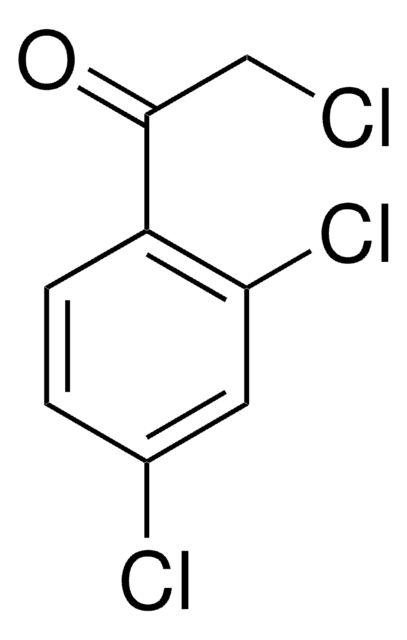208299
Cadmium chloride hydrate
98%
Synonym(s):
Cadmium dichloride hydrate, Cadmium(2+) dichloride hydrate
About This Item
Recommended Products
vapor density
6.3 (vs air)
vapor pressure
10 mmHg ( 656 °C)
Assay
98%
form
solid
reaction suitability
reagent type: catalyst
core: cadmium
density
3.327 g/mL at 25 °C (lit.)
SMILES string
O.Cl[Cd]Cl
InChI
1S/Cd.2ClH.H2O/h;2*1H;1H2/q+2;;;/p-2
InChI key
OISMQLUZKQIKII-UHFFFAOYSA-L
Looking for similar products? Visit Product Comparison Guide
Related Categories
Signal Word
Danger
Hazard Statements
Precautionary Statements
Hazard Classifications
Acute Tox. 1 Inhalation - Acute Tox. 3 Oral - Aquatic Acute 1 - Aquatic Chronic 1 - Carc. 1B - Muta. 1B - Repr. 1B - STOT RE 1
Storage Class Code
6.1B - Non-combustible acute toxic Cat. 1 and 2 / very toxic hazardous materials
WGK
WGK 3
Flash Point(F)
Not applicable
Flash Point(C)
Not applicable
Certificates of Analysis (COA)
Search for Certificates of Analysis (COA) by entering the products Lot/Batch Number. Lot and Batch Numbers can be found on a product’s label following the words ‘Lot’ or ‘Batch’.
Already Own This Product?
Find documentation for the products that you have recently purchased in the Document Library.
Customers Also Viewed
Articles
Colloidal quantum dots (CQDs) are semiconducting crystals of only a few nanometers (ca. 2–12 nm) coated with ligand/surfactant molecules to help prevent agglomeration.
Our team of scientists has experience in all areas of research including Life Science, Material Science, Chemical Synthesis, Chromatography, Analytical and many others.
Contact Technical Service
















